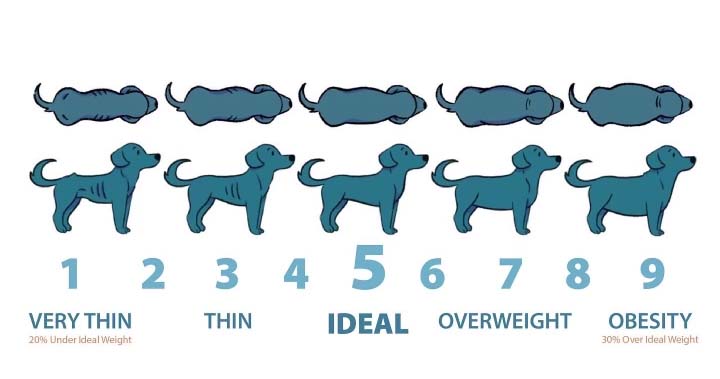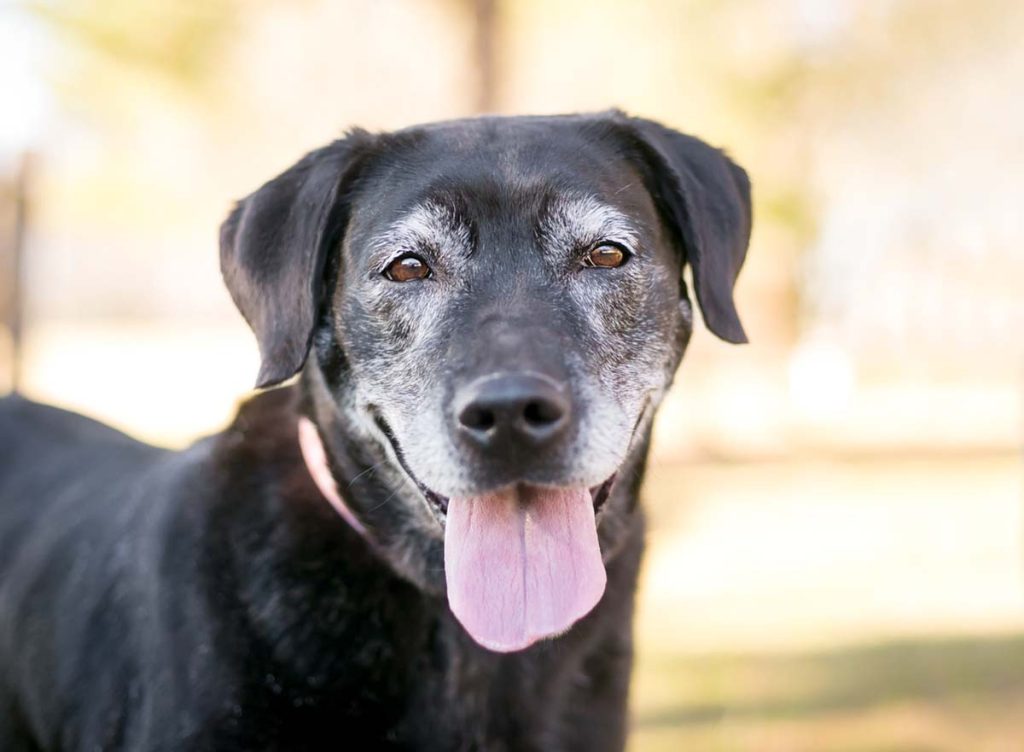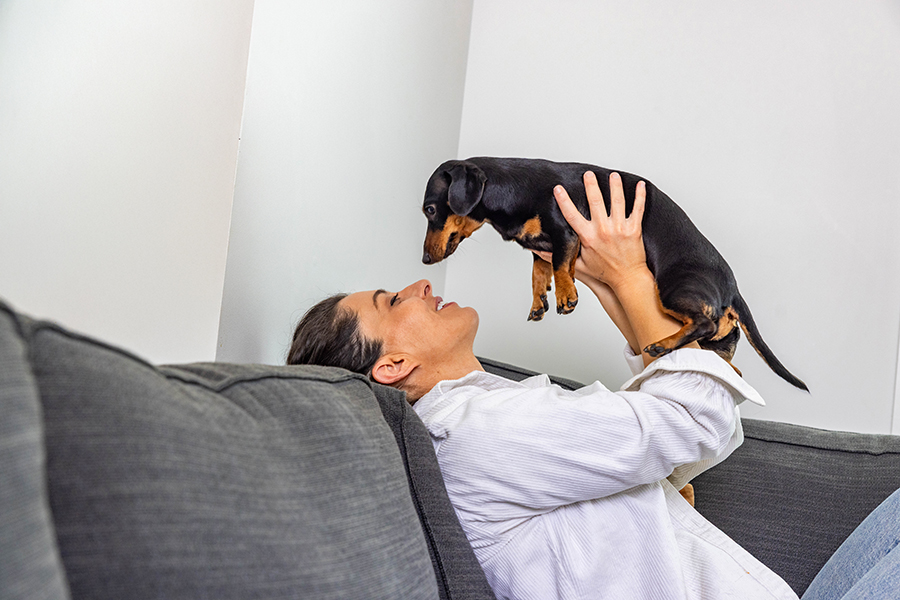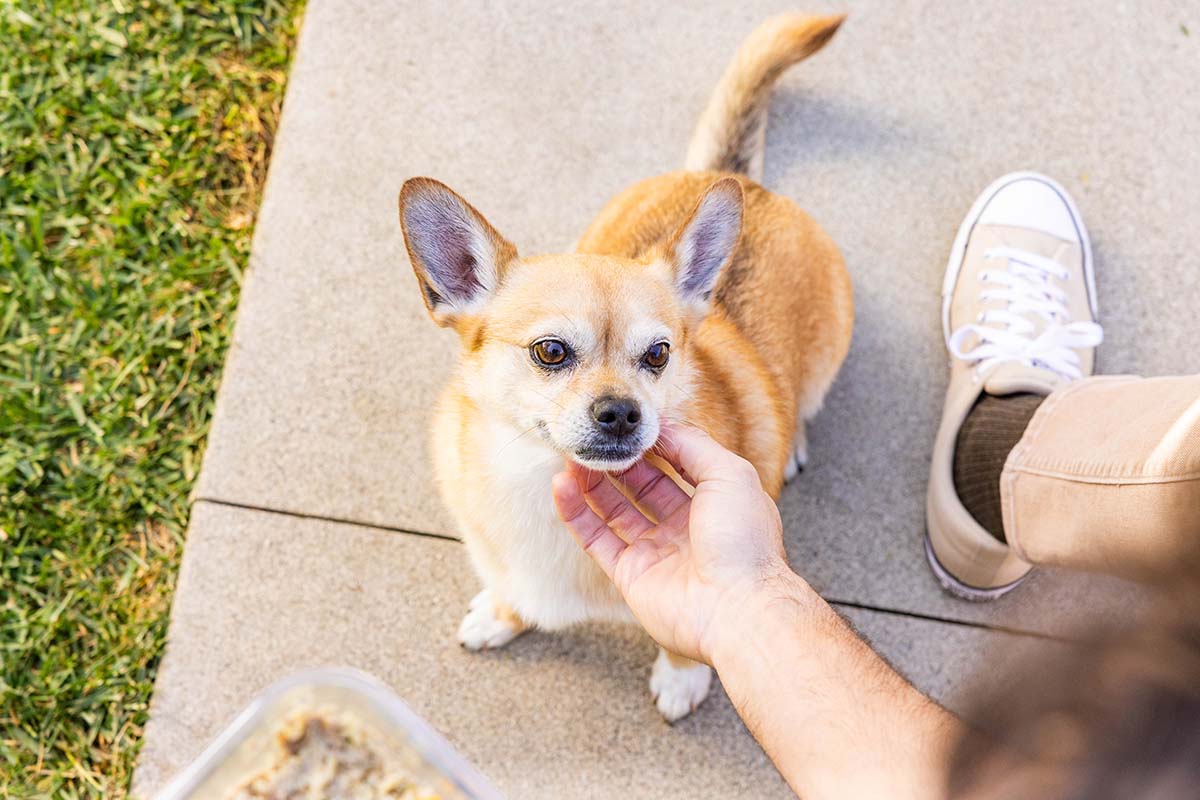This Is Why Your Lab Is Overweight
Is your lab overweight? Labrador Retrievers are actually genetically predisposed to weight gain. Read on for tips on how to help your lab reach a healthy weight.
Is your Lab overweight? Labrador Retrievers, those ever-popular canine companions known for their boundless energy and friendly demeanor, hold a special place in many hearts. However, beneath the playful exterior of this dog breed lurks a hidden vulnerability: a predisposition to weight gain.
This blog post delves into the reasons behind this issue, explores the health risks associated with Labrador obesity, and provides valuable tips to help your Lab maintain a healthy weight.
The Lab’s Double Whammy: Genetics and Food Motivation
Recent research points to a fascinating gene mutation that puts Labs and flat-coated retriever dogs at an increased risk of obesity. A new study published in 2024 by Dr Eleanor Raffan from the University of Cambridge revealed that nearly a quarter of Labrador Retrievers have a genetic mutation in the POMC gene, which plays a crucial role in regulating hunger and metabolism. This POMC mutation essentially makes them hungrier more often and burn calories less efficiently at rest.
The study finds dogs who possess this genetic variant expend approximately 25% less energy while at rest compared to dogs who do not have it. As a result, they require fewer calories to sustain a proper body weight.
Adding fuel to this fire is the Lab’s inherent food motivation. Their eagerness to please and love of treats make them particularly susceptible to overeating. Those pleading eyes and enthusiastic tail wags can make it hard to resist giving them that extra kibble at mealtime, but indulging these desires can have significant consequences.

Health Risks of Lab Obesity
Just like in humans, excess body weight isn’t just about aesthetics for Labs. Obesity puts them at a greater risk for a variety of health problems, including:
- Joint problems: Carrying extra weight puts tremendous strain on joints, leading to conditions like osteoarthritis, which can cause significant pain and mobility issues.
- Heart disease: Obesity is a major risk factor for heart disease in dogs, just as it is in humans.
- Diabetes: Excess weight can make it difficult for the body to regulate blood sugar levels, increasing the risk of diabetes.
- Respiratory problems: Obese dogs can struggle to breathe, especially during exercise.
- Cancer: Studies have shown a link between obesity and certain types of cancer in dogs.
- Shorter lifespan: A study found that the lifespan of overweight dogs was 2.5 years shorter than the lifespan of dogs with a healthy body weight.
Keeping Your Lab Lean: Strategies for Success

The good news is that with a proactive approach, you can help your Lab maintain a healthy weight and live a longer, happier life.
Here are some key strategies for dog owners with overweight dogs struggling with weight loss:
- Portion control: Measure out your Lab’s amount of food carefully according to their weight and activity level. Resist the urge to free-feed, where food is constantly available, as this can lead to overconsumption.
- Choose the right food: Opt for high-quality dog food formulated for Labrador Retrievers and their specific needs. Look for a dog diet that has fewer calories and fat, but is rich in nutrients.
- Exercise is key: Energy use. Labradors were bred to be active working dogs. Daily walks, playtime at the park, and engaging activities like fetch or swimming are essential for burning calories and keeping them fit.
- Beware of treats: Treats should be occasional rewards, not a regular part of their diet. Choose healthy options like fruits and vegetables or low-calorie dog treats.
- Get your vet involved: Schedule regular checkups with your veterinarian. They can monitor your Lab’s weight, advise on appropriate portion sizes, and detect any underlying health issues that may be contributing to weight gain.
Beyond the Scales: Body Condition Scoring

While weight is a good indicator, it’s not the whole picture when it comes to assessing your Lab’s health. Veterinarians recommend using a body condition scoring system (BCS). The BCS involves feeling specific areas of your Lab’s body to assess their fat reserves and muscle tone. A vet or veterinary technician can teach you how to perform a BCS and interpret the results.
Special Considerations: Labrador Puppies and Seniors
Labrador puppies grow rapidly, so it’s important to follow a feeding schedule designed for their specific age and development stage. Avoid overfeeding during this crucial growth period, as it can contribute to weight problems later in life.
Senior Labs may become less active as they age. Adjust their food intake accordingly to prevent weight gain. Consult your vet to determine the appropriate calorie intake for your senior Lab so they can maintain an ideal weight.
Conclusion: A Healthy Lab Is a Happy Lab

By understanding the factors contributing to fat Labradors and implementing strategies like portion control, exercise, and regular vet checkups, you can help stabilize your dog’s weight. Remember, a healthy weight isn’t just about looking good; it’s about giving your pooch the best chance at a long, active, and fulfilling life by your side.
Additional Resources:
This content is for informational use only and does not replace professional nutrition and/or medical advice, diagnosis, or treatment. It is not a substitute for and should not be relied upon for specific nutrition and/or medical recommendations. Please talk with your veterinarian about any questions or concerns.








